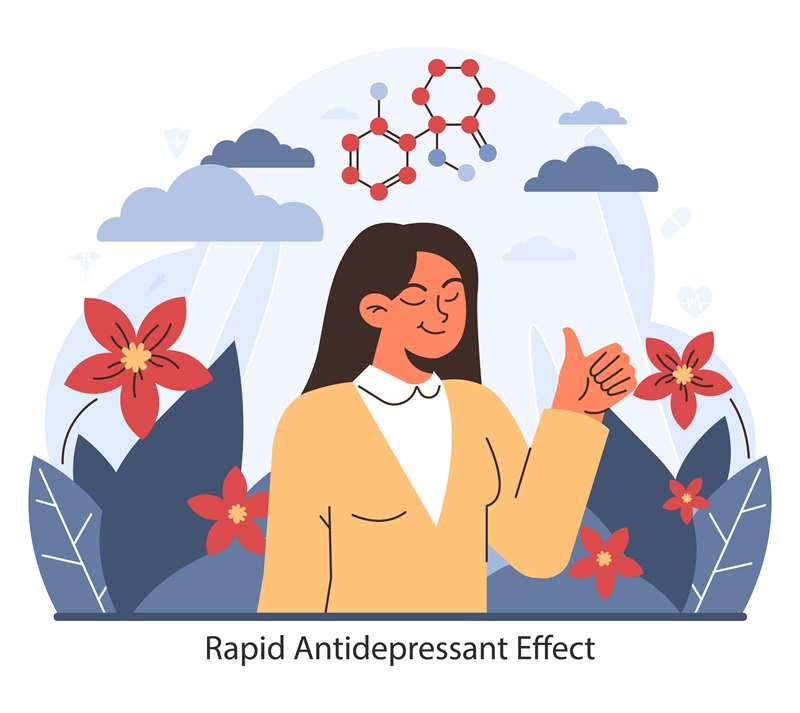How Ketamine-Assisted Psychotherapy Can Help Treat Depression: Insights from Take Charge Inc.

Ketamine Assisted Psychotherapy (KAP) uses Ketamine to help people work through mental and emotional challenges. Ketamine-assisted psychotherapy is a therapeutic approach that combines the administration of ketamine with traditional psychotherapy techniques. This type of psychotherapy leverages the effects of the Ketamine drug to enhance the therapeutic process and help individuals address various mental health issues. Ketamine-assisted psychotherapy can be both exhilarating and daunting – but Terri Dichiser of Take Charge Inc. is a trained psychotherapist who can help answer your questions.
Ketamine-assisted psychotherapy offers an avenue for individuals struggling with mental health conditions such as depression. Ketamine was the first legal psychedelic-assisted psychotherapy available and was approved by the FDA to treat depression back in 2019. Psychedelics are a class of compounds that can induce a heightened mental state that is open to reflective discoveries from the subconscious. Ketamine research has shown it functions by blocking the glutamate receptor NMDA, and it can wake up the brain, repair neurons damaged by stress, and lead to insightful understandings.
Ketamine has been shown to have rapid-acting antidepressant and anxiolytic effects, often providing relief from symptoms of depression, anxiety, PTSD, and other mood disorders within hours or days after administration. Here are some ways ketamine-assisted psychotherapy can help treat depression:
- Rapid Symptom Relief:
- One of the benefits of ketamine may provide is its rapid onset of antidepressant effects. Unlike traditional antidepressants, which can take weeks to become effective, ketamine can reduce depressive symptoms within hours to days.
- This quick relief can be crucial for individuals experiencing severe depression, including those with suicidal ideation, as it can provide immediate respite from overwhelming symptoms.
- Neuroplasticity and Brain Function:
- Ketamine promotes neuroplasticity, the brain’s ability to form new neural connections. This can help repair and rewire brain circuits that may be dysfunctional in depression, leading to improved mood and cognitive function.
- Ketamine also stimulates the growth of synapses (connections between neurons), which may help restore normal brain function and alleviate depressive symptoms.
- Reduction in Suicidal Thoughts:
- Ketamine has been shown to reduce suicidal ideation quickly, making it a valuable option for individuals at high risk of suicide. This is particularly important because many traditional antidepressants can take time to address suicidal thoughts.
- Enhanced Psychotherapy Process:
- During ketamine sessions, individuals may experience heightened emotional openness, making them more receptive to psychotherapy. This can lead to deeper exploration of underlying issues and more meaningful therapeutic breakthroughs.
- The combination of ketamine with psychotherapy allows for the integration of insights gained during the ketamine experience into ongoing therapeutic work, fostering lasting changes in thought patterns and behaviors.
- Treatment of Treatment-Resistant Depression:
- KAP is beneficial for individuals with treatment-resistant depression who have not responded to multiple antidepressant medications or other therapies. For these individuals, ketamine can offer a new avenue of hope and recovery.
- KAP can enhance overall treatment outcomes when used with other treatments, such as medication and therapy.
- Personalized Treatment:
- KAP allows for a highly personalized treatment plan. Dosage, frequency, and the therapeutic approach can be tailored to the individual’s specific needs and responses to the treatment.
- Throughout the treatment process, the individual’s progress is closely monitored, and adjustments are made to optimize outcomes.
- Support for Ongoing Recovery:
- After the ketamine experience, therapy sessions focus on integrating the insights gained into everyday life. This helps individuals develop new coping strategies, improve emotional regulation, and build resilience against future depressive episodes.
- The insights and emotional breakthroughs experienced during KAP can lead to continued personal growth and improved mental health beyond the immediate treatment period.
During a ketamine-assisted psychotherapy session, you are in a quiet room, take the prescribed dose of Ketamine in the form of a lozenge or rapid-dissolving tablet, and let your journey begin. With soft music and an eye mask, we create a safe environment. For the next approximately 45 minutes, we’re exploring whatever comes up, with me as your guide. Ketamine may relax any mental defenses or ‘walls’ that often pop up when we’re trying to tackle painful emotions. With those defenses down, you can dig into things in a safe space without battling against your mind’s natural barriers. After the Ketamine journey, we discuss what has surfaced, and this process continues beyond the session into our integration session. This psychotherapy includes a preparation-therapeutic, medicine, and integration session after the medicine session. Most clients will have 2-6 medicine sessions, and maintenance may occur as needed based on your needs.
Take Charge Inc. believes that Ketamine-assisted psychotherapy offers a promising approach to treating various mental health conditions, including depression. We realize taking the first step into Ketamine Assisted Psychotherapy can be a difficult one. The last thing we want is for clients to feel pressured to make an appointment. We aim to provide as much information as possible so you can make the best decision on how to proceed. As research continues to unfold, the potential for this innovative approach to contribute to the mental health landscape is both exciting and promising, opening new doors for those seeking transformative healing. Contact Terri Dichiser, owner of Take Charge Inc., at (913) 239-8255 to discuss your options today.
